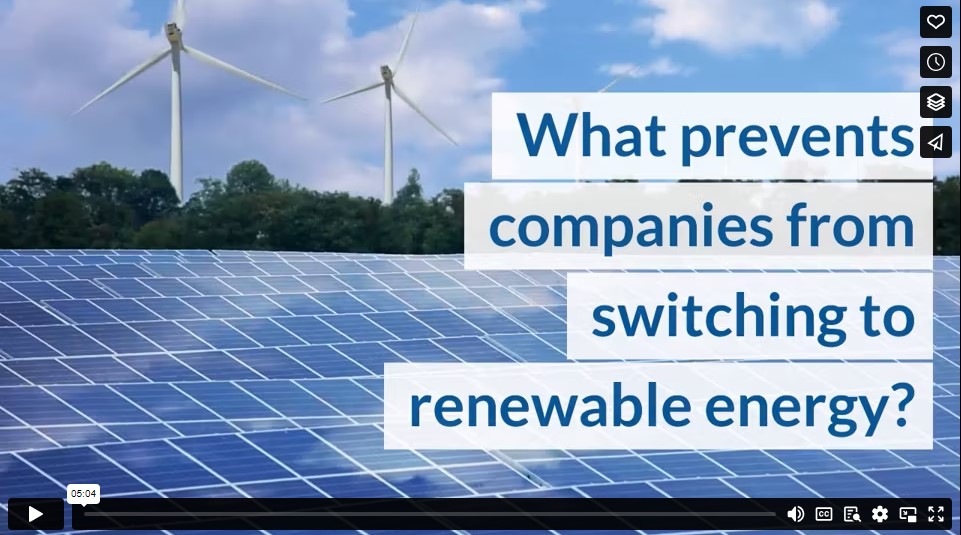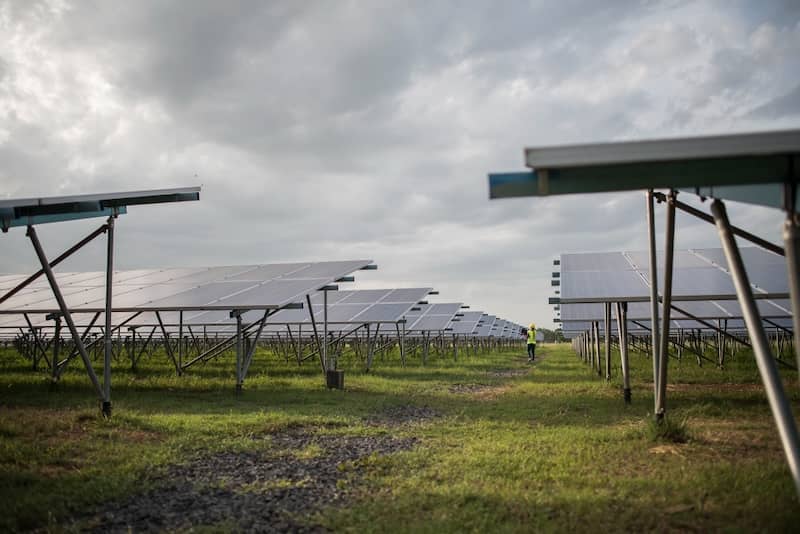
Change is hard. Staying with the status quo that has worked for us for so long can be tempting, but it can also mean missing out on better opportunities. Don’t let fear of change prevent you from exploring renewable power for your company’s energy needs. A thoughtful analysis of renewable energy options will tell you whether environmentally conscious energy fits your business and reveal the best ways to go green. Let’s examine some reasons why companies push back on switching to renewable energy and how you can turn these barriers into opportunities.
Geographic limitations
While nearly every location has access to some form of renewable energy, there are undoubtedly geographic limitations. If your operations are in the northern territories of Canada, on-site solar power might not be a practical choice. Solar panels mostly operate efficiently when placed in strong, direct sunlight, meaning solar favors lower latitudes. Chicago, Illinois, known as “The Windy City,” might be an ideal location for an individual wind turbine. On the other hand, much of Florida, one of the USA’s least windy states, would see limited benefit.
That said, your area might surprise you. Las Vegas, Nevada, is in a desert where water is scarce. Still, electricity users there benefit from hydroelectric power thanks to the nearby Hoover Dam. Connecticut is one of the least windy states but has three large-scale wind turbines.
While your business’s location might make a particular green energy system less effective, that doesn’t mean there aren’t other options. Not much sun? Look into wind generation. Even if you don’t have the appropriate conditions for on-site generation, you may still be able to source some of the power you purchase from greener sources, like a business owner in the Nevada desert whose company runs on renewable energy from the Colorado River.
Energy consulting firms can help you determine your available options for on-site or grid-delivered renewable power. Energy procurement companies will know how to make wind energy part of your procurement strategy, and a broker in Nevada will understand both solar and hydroelectric power options.
Limited storage capacity
If your business is open until 9 pm to serve customers or runs machines overnight, solar energy directly from panels isn’t going to work for those times. This limitation might cause you to hesitate about switching to in-house solar.
However, batteries have become more efficient, smaller, and longer-lasting in recent years. That means your solar panels can spend all day collecting energy, and the excess power can go to your battery system. You can then use that power to meet overnight demand. If your battery size and solar generation can’t meet all your post-sunset needs, solar could still be a viable option as a supplement to grid-supplied power.
Space or structural concerns
Not all buildings are ideal for solar panels. The roof angles may not allow the panels to be placed for efficient energy capture. The roof type may not support the weight of the system. Likewise, you may operate in an area where wind generation is viable, but you may not have the space to set up a turbine.
These are barriers to switching to in-house generated renewable energy. If your situation doesn’t allow for on-site generation, you may need to rely on grid-delivered power from renewable sources to make your operations more environmentally friendly.
Reliability
If the sun isn’t shining, the wind isn’t blowing, river levels are low, and the tides aren’t active, many renewable energy sources won’t generate much power. You can’t shut down your operations because it’s cloudy or the air is still, but does this make relying on renewable energy sources unwise? Not necessarily.
You can mitigate this conundrum with a layered approach. If you have solar panels in addition to a wind turbine, you aren’t dependent on only one set of conditions. If you add a battery system, you can fall back on stored energy when the weather isn’t cooperating. Finally, remaining tied to the grid allows you access to electricity, no matter what your own system is doing. A diversified system addresses reliability concerns. In fact, it is more reliable than relying on grid-delivered energy alone.
Within the next couple of years, most businesses won’t be able to rely on 100% off-grid electricity because of reliability concerns. However, you can still source much or most of your energy from renewable sources.
On-site generation vs. the electric grid
It’s important to note that you don’t need to generate 100% of your electricity on-site to use renewable energy. Yet, solar panels, a wind turbine, or geothermal generation may be solid options for your business. If they won’t generate enough to cover 100% of your energy needs, or if you need more reliability, you can check with your local utility to see about green energy options.
Many energy companies offer commercial contracts that use renewable energy for at least some of their generation. That allows you to benefit from the ease and reliability of commercial energy, avoid the high up-front costs of purchasing an energy system, and still reduce your company’s carbon footprint. Consider working with an energy consultant to understand how to make the energy you buy more environmentally friendly.
For nearly every type of business in any location, there is a way to switch, at least partially, to renewable energy. That may mean installing solar panels or changing your energy contract to focus on green energy. Or perhaps both. However you do it, you will feel fantastic about making your operations more environmentally responsible and sustainable.
Infographic
Change is challenging, but it can also lead to missed opportunities. Don’t let fear of change prevent you from exploring renewable power for your company’s energy needs. Analyzing renewable energy options can help determine if environmentally conscious energy fits your business and reveal the best ways to go green. Understanding why companies push back on switching to renewable energy can help turn these barriers into opportunities.

Video





